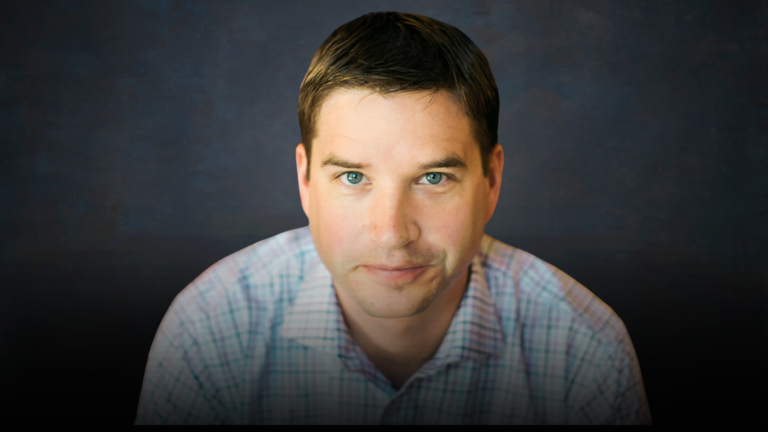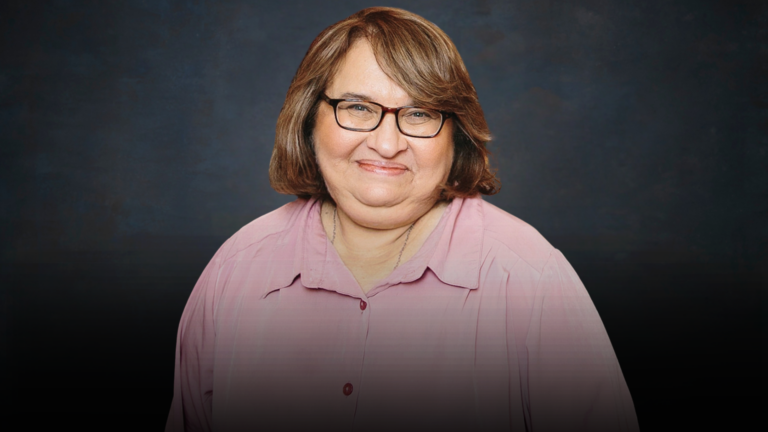This week’s conversation is with Jill Ellis, the former head coach of the U.S women’s national soccer team.
Jill is the all-time winningest coach in U.S. Soccer History. She led the team to World Cup victories in 2015 and 2019 and was twice named FIFA World Coach of the Year.
She completed her time with the National Team with a record of 106 wins, 7 losses, and 19 ties.
Previous to the National Team, she was the head coach of the women’s soccer team at UCLA for 12 years.
A few weeks back I had the fortune of speaking with one of Jill’s former players, Becky Sauerbrunn, who mentioned the inherent pressure that comes with playing on the National Team.
There are so many highly talented individuals vying for so few spots. Competition for playing time is through the roof. There is constant pressure to win.
I wanted to speak with Jill to better understand their culture and her process for managing – especially when the culture gets tested.
“I have this saying when I’m in my tough moments that, ‘Everything I’ve experienced to this point has prepared me for this moment.’ Trust what’s inside of you. Trust your compass or that space where you’ve dealt with things and you’ve come through it. It’s rarely life or death.”
In This Episode:
What did she learn from her mom growing up?
I think certainly the consistency piece, people would say to me, “What makes a great player or a great team?” And I think anyone can have those moments of high performance, but I think it’s consistency. And I think what I saw in my mom was a consistency in her behavior. I don’t remember her ever losing it or being emotional. I remember being on the sideline and seeing one of my assistant coaches being incredibly emotional. And I thought to myself, “If I ever coach, I want to be so steady on that sideline that the team never thinks I’m not with them in that moment.” So I tried to … And as a young coach, I didn’t master that for sure but I think trying to be as consistent as I could with my players was something that was important. And, again, I think being someone that they could rely on. My hope is that any of my players would know if they were ever in a bind, they could pick up the phone and call.
Did she ever let her emotions get the best of her?
I would say in my early younger days of coaching especially when … Now I look back on it and it’s slightly embarrassing, but if a referee made a poor decision, it was never something about the players. If there was a poor decision or we have red cards in our sport, I mean, I got a couple and the two that I got were because my players were violently tackled. Those emotions come out and yeah, I have a hard time kind of keeping those in, back in the day. And then I realized that’s just expended energy. What I learned, the higher I went up in the coaching in terms of … With the senior team it was, you can’t miss a second. You can’t waste your emotion because you have to make a decision. It’s the next decision is what you need to be focused on.
What did she learn from her dad?
Take risk. I mean, that was something he said. When you had a big decision, that’s an exciting space to live in. I mean, I’m paraphrasing, but when you sit at the crossroads or a juncture and just people can be paralyzed with, “Gosh, what should I do?” And he’s like, “What an amazing space to be in. You have choices. That’s a blessed space to be in.” And so when I had big decisions, it was never something that kind of paralyzed me. It was okay either way, I’m going to win here. This is a cool space to live in. And I think it allowed me many times to take that different route. I could have stayed in England, I wanted to come here. I could have stayed at UCLA. There were many junctures where I was fine taking the risk of the unknown. I’m not someone that needs to have everything mapped out in front of me.
Optimism is a key tenet for leadership
I don’t think you can be a leader if you aren’t optimistic. One of the things my father always did is say, “Share your success, own your failure.” These were things that I just grew up embracing. So I very much feel that those carry through to how I went into management and coaching. And probably even playing. As a player, I was very competitive but I always believed we were going to win the game. It was kind of that. It also spilled over into my sports.
What is her relationship with winning?
We had success at UCLA, but what I learned there is I was so focused on the trophy, on the outcome, on winning. And I was mind blown. I got to meet coach Wooden a few times. I was mind blown that like, “How did he never talk about winning?” Because it just seemed foreign to me because that’s what I wanted to do. But I think in time, yes, I’ve learned that the steps and the process and the growth and all these things that happen, I think I realized that when we won the first world cup, it was gone in a second, that feeling. And so now it was, “Okay, what’s next?” And so I think what I realized is actually the crime is really where the commitment is and the passions is in that ascension to try and get up there, not just the outcome.
What is she searching for?
I think just at my core and at my root, I want to help people. That’s I think something that helping people, whether it’s obviously achieve a goal or it’s help someone get off drugs. That fills me up. That’s the piece I think that fills me up. So if I’m searching or striving for something, it’s what can I do to make this better for somebody?
What does she hope her players would say about her?
That I was honest. I feel that I never tried to tell a player what they wanted to hear. I tried to always be as honest. I think that’s a show of respect to that person. This is their craft, this is what they’re working on, this is what they’re sacrificing for. I’m not going to candy coat or I’m not going to, so that’s, I think truthfulness I would hope. Probably that I care. I think that would be something that, whether it’s empathy compassion, again, I mean, I’ve had to cut players and I’m clearing up but not trying to tear up in front of them, but it touches me to that point when you’re having to have that hard conversation. But I hope that they would understand that that’s not an easy decision or, but so I would say caring, compassion.
What was her approach to coaching the National Team?
I think if you build a team and you want to harness the assets of a team then you have to understand the strengths of those players, to some degree, the weaknesses of those players. And you have to create something that allows that to strengthen and to grow. When you get to the top, top level, these players aren’t changing dramatically. It’s not development. I mean, there’s an environment where they can work on things, but they’re really established at this point in their careers. So you’re not going to try and get that round peg in that square hole. You’ve got to really shape that team and that environment to harness those assets that you want.
What makes the National Team so special?
It is a testing ground, it’s fierce, it’s combative, it’s, I would say the intensity and I’ve had people that watched the game on television, and then they come to a training session and they’re up close and personal like wow. It’s because the tempo of everything we do. And even as we went through the training session, because our transitions between drills, we tried to continue that tempo. So there was no drop off in terms of a rhythm of the training, because it’s maximum intensity on the pitch as we move through things. That’s really what it’s like. I mean, it’s a battle out there for these players. And every day I feel that they probably feel under the microscope, but it’s not necessarily from the coach, it’s from there’s 10 other people that want your spot. And that’s a pressure to perform daily.
How did she manage so many egos, so many personalities, so many highly talented people?
I think players ultimately want two things. I think they want to feel valued and has to be a sense of trust between them, right? That there has to be trust. it’s having honest conversations and open conversations. I think one of the things that can destroy an environment is when people live in the gray area, I’m real big on trying to have people understand and have clarity and roles, expectations, responsibilities. I think that’s important.
How does she deal with the athlete that is a high earner, a high producer, and isn’t quite fitting in the culture?
I think sometimes as a coach, you make decisions that are best for the team, potentially not best for you. I think you can appeal to players to understand how much the team needs you, but this is the challenge now I think of the modern athlete that has the social media, that has the bank account like you’re talking about. It’s a big task for a coach to make those decisions in terms of, is this the player that we can live with or live without? Really, that’s what it comes down to in terms of that.
How did she manage other’s opinions of her?
I actually didn’t struggle with that because I really, first of all, social media I’m not on it, I wasn’t on it. So I think that in and of itself, and I used to say this, I don’t really care to read about someone else’s opinion of my team because they have 1/10th of the information and I’m there and I know how well or poorly we’re playing. So I just never put a whole lot of time, effort or energy and I really didn’t. I literally said to my press office, if there’s something important, I need to know, let me know because I had no time for it. So I also believe if people are real, if people have been in leadership positions, they’re less likely to pull the cross hairs. I think they have an understanding of what that person’s going through. So I didn’t didn’t listen to that per se.
Instilling trust
Even before every single game, if I checked in on my parents, my mom would say, “Just do your best.” She would say that before every track meet, she would say it before anything in my life. That’s all you can do is your best. And I think that’s so liberating, right? To have that sense that it really comes down to that. It’s like I say to coaches sometimes, “Do you really think your players want to kick the ball over the crossbar? Of course they don’t. So don’t bury them for that moment or get frustrated or demonstrative. They’re not trying to do it.” And so I think that’s a really good space to live and that’s a good place to be as it relates to helping someone to take that risk or trust themselves. You’re gonna give everything you possibly have because you care and you will take something away from this even if it doesn’t work.
What was an incredibly challenging moment for her?
On a professional level, it was the post, I think 2017, so post our failure in the 2016 Olympics, when even though you can prepare your shareholders and tell them what it is that you’re going to basically change things to bring in and when you shape all that and still basically some players wanted to go in a different direction. Right? Wanted you out. That was hard. It sucks.
Early sport specialization
If you’ve got a kid and all they want to do is dribble a soccer ball around, and you can put a baseball bat there, or you can put a basketball there, and this is what they want to do. Then I don’t think there’s anything wrong with that kid being so in love with what they do there, that that’s what they want to do from the age of six years old. The advice I’d give parents is to feed their kid’s passion, whatever it is, and allow them to kind of shape this path because listen, what are we talking? Less than 1% end up in the pros? I mean, it’s about their joy and their happiness. And I think probably the more the message I would love to give parents is man, on that car ride home, don’t talk about the game, just celebrate them. Because I think that’s really, really hard.



